|
Douglas Silas,
Specialist SEN Solicitor 18/1/2021
So, we just seem to be settling in again; although it appears that whilst a lot of people are once more working from home if they can, many more children and young people this time seem to be (sometimes only timidly) going back to school or college, if they are allowed to.
I must admit though that I was pleasantly surprised to hear from some people after my first (now) weekly SEN Update last week, thanking me for keeping them updated. So I write now this week again, this time knowing that there are many people being helped by my doing weekly updates again, in now in what is our third 'lockdown'. As I provided you with a lot of information/signposting last week, this week I was going to focus on just a few things. However, there is still a lot of information or news out there that I want to bring to your attention, so this week's update is a bit longer than I expected! Again though, I hope that this helps people.
Don’t forget, to ensure that you never miss one, you can get my SEN Updates personally by completing your email details above,
or by following me on one of the social media platforms I use (i.e. Twitter/Facebook). You can also share this SEN Update with others (please only do so if it may be relevant to them) by using one of the icons, usually to the right or at the bottom of this page.
The first thing that I want to draw your attention to is a letter sent out a few days ago on the afternoon of Thursday 14/1/2021 by the Department for Education's (DfE's) Special Educational Needs and Disability Division, entitled 'SEND NEWSFLASH - Special & alternative schools guidance & open ministerial letter', which stated:
'Dear colleagues, We would like to draw your attention to the additional guidance published today for special schools, specialist post-16 providers, and alternative schools (including hospital schools) during the national lockdown period. It should be read alongside the main guidance document: Restricting attendance during the national lockdown: schools and the Further education guidance for restricting attendance during the national lockdown, which covers the main operational issues. Please also find attached an open letter from Vicky Ford MP, Parliamentary Under Secretary of State for Children and Families to children and young people with SEND, their families, and those who work to support them. Regards, Special Educational Needs and Disability Division.' The open letter from Vicky Ford MP then stated: "To all children and young people with special educational needs and disabilities (SEND), their parents/carers and families, and others who support them. As you will be aware, on Monday 4th January, the Prime Minister announced a national lockdown to control the spread of coronavirus (COVID-19), which is expected to last until at least mid-February. Unfortunately, this means we have to return to restrictions on attendance at schools and colleges. I know that these restrictions are a source of anxiety for many children and young people with special educational needs and disabilities (SEND) and their families. As the Minister for Children and Families, I am committed to ensuring that appropriate education and support is available for all children and young people during the national lockdown, whether they are attending their education setting or at home. I am grateful to the families who provide care to their children and the professionals who work tirelessly to support them. I am pleased to assure you that children and young people with an EHC plan should be allowed to continue attending their education setting if their parent wants them to (or, for post-16 provision, if the young person wants to attend), as they are classed as vulnerable for the purpose of determining which children and young people should be allowed to attend school or college during this period. The definition of vulnerable also includes others at the education setting and local authority’s discretion, including pupils and students who need to attend to receive support or manage risks to their mental health. We know that many children and young people with SEND have faced challenges during the pandemic and I am committed to ensuring that we support their attendance wherever possible. Where, for any reason, it is not possible for a child or young person with SEND – including both those with an EHC plan and those who are supported through SEN Support – to attend their education setting during this period, they should receive remote education and support. The legal duty on schools and colleges to use their best endeavours to meet the special educational needs of their pupils and students, including those supported through SEN Support, remains unchanged, whether they are attending school or college or at home for any period. Attendance at education settings In the face of the rapidly rising numbers of cases of COVID-19 across the country and intense pressure on the NHS, it is essential that we reduce opportunities for mixing and transmission. For this reason, only vulnerable children and young people (including those with EHC plans) and children of critical workers should attend their school or college. Guidance on who should be allowed to access a school place can be found here: https://www.gov.uk/government/publications/coronavirus-covid-19-maintaining-educational-provision/guidance-for-schools-colleges-and-local-authorities-on-maintaining-educational-provision. This is not a decision that we have taken lightly. I am aware of the challenge that this will present to children and young people, their parents and teachers. We will review this position regularly to ensure that all children and young people can return to face-to-face education as soon as possible. I want to reassure you that the decision that attendance should be limited does not suggest that schools and colleges have become significantly less safe for children and young people. The risk of children and young people becoming seriously ill from COVID-19, including the new variant, continues to be very low, with the overwhelming majority experiencing no symptoms or very mild illness only. For children and young people who continue to attend their education setting, and their teachers, the system of protective measures means that any risks are well managed and controlled. Details on the system of protective measures that schools should put in place are included in guidance here: https://www.gov.uk/government/publications/actions-for-schools-during-the-coronavirus-outbreak. All pupils and students not receiving face-to-face education for whatever reason should be provided with suitable remote education. Education settings should work collaboratively with families, putting in place reasonable adjustments as necessary, so that pupils with SEND can successfully access remote education alongside their peers. We have also published a list of high quality online educational resources to support home learning. This includes resources that are suitable for pupils and students with special educational needs and disabilities (SEND) of all ages, from early years to those in further and higher education settings. The list of resources can be found here: https://www.gov.uk/guidance/get-help-with-remote-education#special-educational-needs-and-disabilities-send. In addition, where a child or young person has an EHC plan, it remains the duty of the local authority and health commissioning body to secure or arrange the provision specified in the plan under section 42 of the Children and Families Act 2014. However, I know that there may be times where it becomes more difficult to do so than usual. In these circumstances, education settings, local authorities and health partners (where applicable) should discuss with families to co-produce alternative arrangements for delivering provision. These decisions should be considered on a case-by-case basis which takes account of the needs of and circumstances specific to the child or young person, avoiding a one size fits all approach. At this stage, we do not intend to use the powers under the Coronavirus Act 2020 to modify the section 42 duty, but we will keep this position under review based on the evidence. Special schools and special post-16 institutions should continue to welcome and encourage pupils and students to attend full-time (or as per their usual timetable) where the parent or carer wishes for their child to be able to attend (or for post-16 settings, where the young person wishes to attend). However, I know that there may be circumstances where it is not possible for specialist settings to provide their usual interventions and provision at adequate staffing ratios, or with staff with vital specialist training. In these cases, settings should seek to resume as close as possible to full-time provision as soon as possible, discuss these decisions with families in advance to agree an approach that would be in the child or young person’s best interests, and then keep this under review. Guidance for special schools and specialist settings is available here: https://www.gov.uk/government/publications/guidance-for-full-opening-special-schools-and-other-specialist-settings. Some children and young people and their families may be understandably apprehensive about attending school or college, even where they may benefit from the routine and support available through continued attendance. In the first instance, I strongly encourage parents or young people to discuss any concerns with the education setting, to see whether any reassurance could be provided or adjustments made to support attendance. Education settings, working with other local partners where appropriate, should consider carefully the concerns of the parent or young person and work collaboratively with families so that, where appropriate, the child or young person can be supported to attend. The decision for a child or young person with an EHC plan to stay away from their education setting is ultimately a matter of choice rightly for parents and young people. If a parent wishes for their child to be absent or a young person chooses not to attend, they should inform the education setting of this so it can be properly recorded. Given the exceptional circumstances, the Departmental guidance is clear that it expects leaves of absences to be granted. Absence will not be penalised. Children who are clinically extremely vulnerable The Department of Health and Social Care (DHSC) has published updated guidance on shielding and protecting people who are clinically extremely vulnerable from COVID-19, which is available here: https://www.gov.uk/government/publications/guidance-on-shielding-and-protecting-extremely-vulnerable-persons-from-covid-19. As our knowledge of COVID-19 has grown, we now know that very few children and young people are at highest risk of severe illness. Doctors have therefore been reviewing all children and young people who were initially identified as clinically extremely vulnerable to confirm whether they are still thought to be at the highest risk of becoming seriously ill and discussing this with families. Those aged 18 or over who have been identified as clinically extremely vulnerable should have received a letter informing them of the updated guidance. Where parents have discussed this with their child’s doctors and doctors have confirmed that a child or young person is still considered clinically extremely vulnerable (or, for those aged 18 and over, they have received a shielding letter), they are advised not to attend their education setting during the national lockdown. Education settings should work with local authorities and health partners to ensure that remote education and support is put in place for any pupils or students who are not attending their education setting. Mass testing in specialist schools and special post-16 institutions The Government is delivering a programme of rapid asymptomatic testing in the first half of the Spring term for children and young people in year 7 and above (or equivalent) and school staff, which will be delivered in mainstream and special schools with secondary-aged pupils, special post-16 institutions, Pupil Referral Units and other Alternative Provision schools. This will help to identify asymptomatic positive cases and break the chains of transmission of coronavirus. This is particularly important in special schools and specialist colleges, where the education and care provided often involves close proximity between children or young people and staff and social distancing can be harder to observe. Testing is voluntary, so no child or young person will be tested unless informed consent has been given by the appropriate person (usually the parent or young person). As such, no children or young people will be prevented from receiving face-to-face education if for any reason they are not tested. The test involves a swab of the throat and/or nose. Although the majority of secondary-aged children and young people will be able to self-swab, we recognise that the self-swabbing may cause significant concerns for some children and young people with SEND. Where self-swabbing is not possible, special schools and special post-16 institutions are likely to have staff who have undertaken a variety of training to support health needs and who could administer swabs where appropriate. In exceptional circumstances, settings may want to work with parents to agree to a parent coming in to support their child to self-swab or to swab their child. Detailed guidance on mass asymptomatic testing in specialist settings is available here: https://www.gov.uk/government/publications/guidance-for-full-opening-special-schools-and-other-specialist-settings/mass-asymptomatic-testing-in-specialist-settings. Resources and information for staff have been made available to schools and colleges as they set up their programme. More information for young people and their families, including visuals and easy-read format written materials, will be made available shortly. Health services and respite for children and young people with SEND During the national lockdown, there continues to be an exception to the restrictions on leaving your home and on gatherings set out in Regulations for provision in an EHC plan. This means that children and young people can continue to receive appropriate support from health and social care services where it is reasonably necessary for the purposes of provision specified in an EHC plan. Specialists, therapists, clinicians and other support staff can provide interventions as usual, including where this requires them to move between settings. In addition, there is also an exception to the restrictions on leaving your home and on gatherings set out in the Regulations where this is reasonably necessary for the purpose of respite care for a vulnerable or disabled person. This means that parents and carers may continue to access respite care to support them in caring for their disabled children during the national lockdown, including both services which care for children away from home and care which is delivered in the family home. Guidance for parents on early years providers, schools and colleges, which sets out that respite provision for families of disabled children can continue to operate, is available here: https://www.gov.uk/government/publications/what-parents-and-carers-need-to-know-about-early-years-providers-schools-and-colleges-during-the-coronavirus-outbreak. I know that there are many positive examples of local authorities having worked with families to agree flexible solutions for delivering support – for example, increasing the use of direct payments – and I would encourage this collaborative working to continue. Parents of disabled children under 5 who require continuous care can also continue to form a support bubble with one other household, and parents of all children under 14 can continue to form a childcare bubble. Guidance on making a support bubble with another household can be found here: https://www.gov.uk/guidance/making-a-support-bubble-with-another-household. Building on the support that we have secured to date to ensure that health services for children and young people with SEND (for example, therapies and community children’s nursing) continue to be prioritised, on 10 December, the Chief Allied Health Professions Officer (England) circulated a letter highlighting the importance of the continuation of services delivered by Allied Health Professionals (which includes therapies) for children and young people with SEND. The letter emphasised that services should continue to be prioritised and that the redeployment of Allied Health Professionals should be avoided wherever possible. This enables the provision of therapy services for children and young people with SEND to continue or to be restored where there has been disruption. I know that this national lockdown will be challenging for children and young people with SEND and their families. I am incredibly grateful for the continued dedication and diligence of those who work to support them, whilst recognising that there may be circumstances in which it is more difficult than usual to do so. Co-production and effective communication between all partners continue to be key to ensuring that children, young people and their families can access high quality education and specialist professional care, working together to coproduce alternative methods of delivering this where appropriate. Yours sincerely, Vicky Ford MP Parliamentary Under-Secretary of State for Children and Families" There's not really anything I can add to this, is there?.
As ever, there was a lot of other news this week.
Since I know everyone may not have time to read everything in my updates, I will just signpost you to the articles that I found most interesting and let you go and read them if they are of interest to you: - BBC News - 'Covid-19: Early years staff 'should have vaccine priority'; - Sky News - 'COVID-19: Poorest families hit hardest by pandemic and will find it hardest to recover - report'; and also: - The Guardian - ''We feel forgotten': special needs teachers on helping England's vulnerable children'; - BBC News - 'Covid-19: Special school staff want jab priority'.
But I now that many parents don't just want to read the news, they want practical help!
I was therefore really pleased then when I saw a tweet from the Scope organisation which read: "We want all disabled children and their families to get a good night’s sleep. Our sleep team has lots of useful knowledge and tips to share. Listen now to our first podcast series - transcripts also available. https://scope.org.uk/advice-and-support/sleep-podcast/…
Where can I find further information?
Again, aside from clicking on the relevant links for more information, I would also remind you of the very useful resources and information provided on the following websites: - IPSEA - Council for Disabled Children - Contact - Scope - Special Needs Jungle I would also highlight again the fact that you can now get digital copies of the magazines: SEN Magazine and Autism Eye which are both very helpful to any parents or professionals involved with children/young people with SEN
Keep safe until next week.
With best wishes Douglas
P.S I understand that there are a number of educational or other useful resources now on the web, so I would be very grateful if you could let me know of any that you find that other people may find useful, so that I can direct people to it.
How useful do you find my SEN Updates?
Created with Quiz Maker
Comments are closed.
|
Archive
March 2022
|
© Douglas Silas Solicitors 2005-24
Authorised and Regulated by the Solicitors Regulation Authority (SRA no: 643718)
‘Douglas Silas Solicitors’ is the trading name of ‘Douglas Silas Solicitors Limited’, a limited company registered in England & Wales (company no: 10689991), whose registered office is Gable House, 239 Regents Park Road, Finchley, London, United Kingdom, N3 3LF. A list of members/directors may be inspected at our office.
Authorised and Regulated by the Solicitors Regulation Authority (SRA no: 643718)
‘Douglas Silas Solicitors’ is the trading name of ‘Douglas Silas Solicitors Limited’, a limited company registered in England & Wales (company no: 10689991), whose registered office is Gable House, 239 Regents Park Road, Finchley, London, United Kingdom, N3 3LF. A list of members/directors may be inspected at our office.

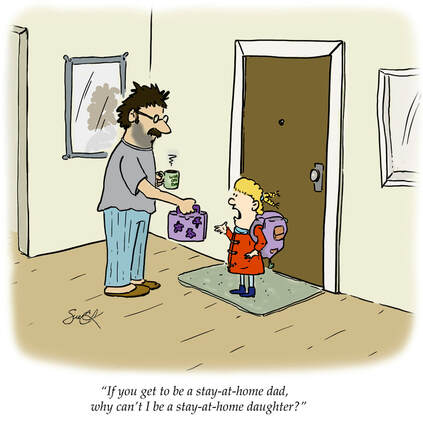
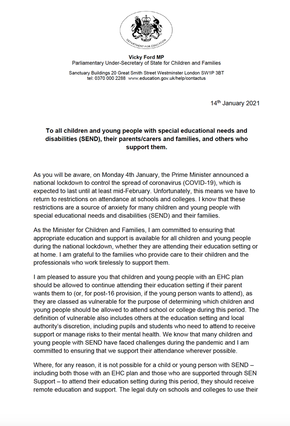
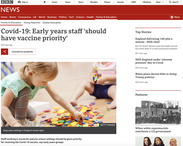
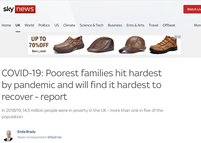
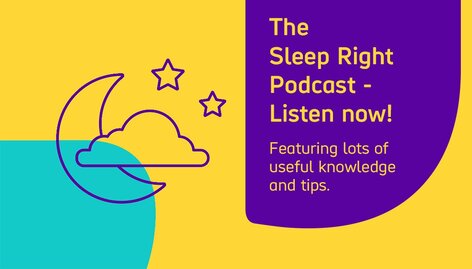

 RSS Feed
RSS Feed







